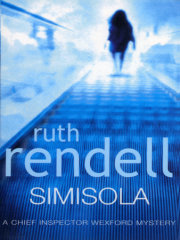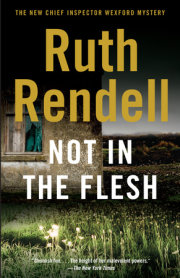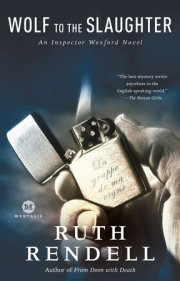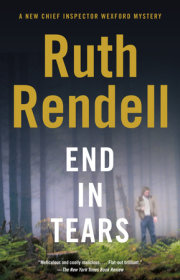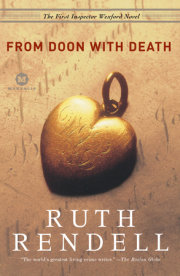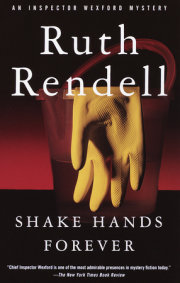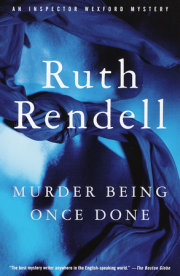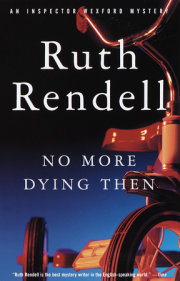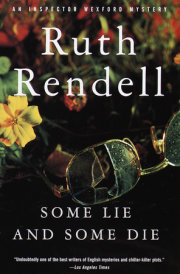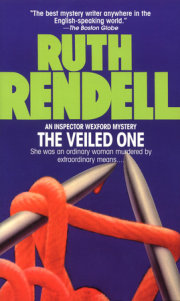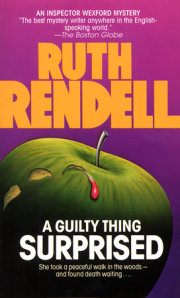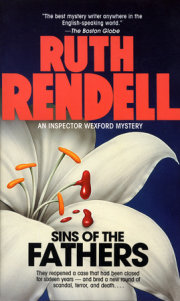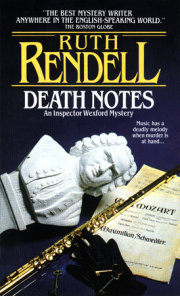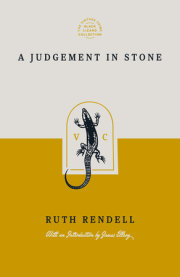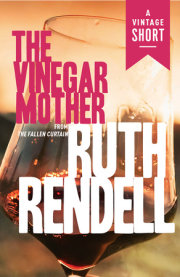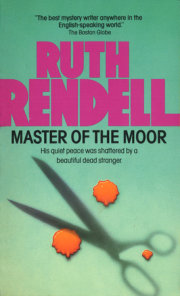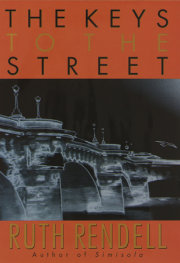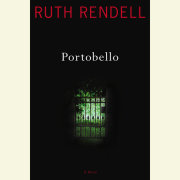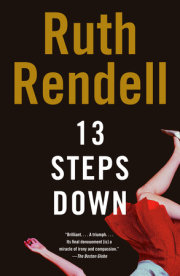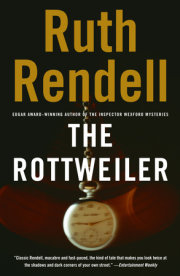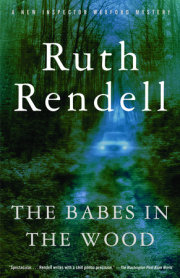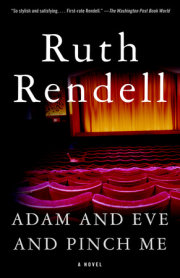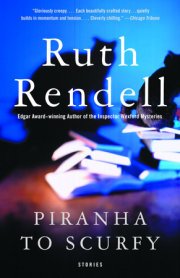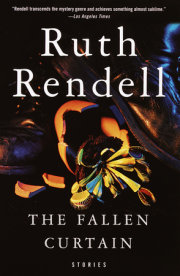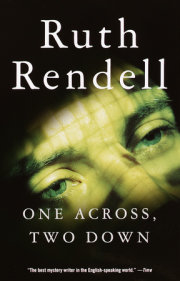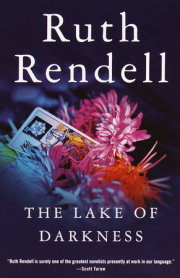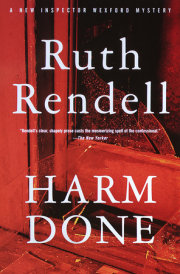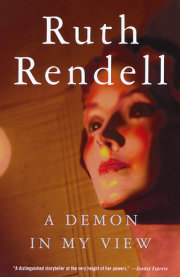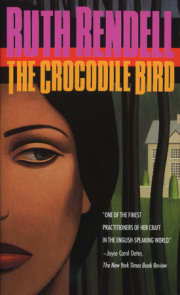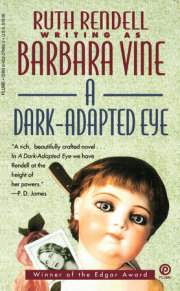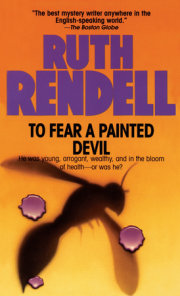"We're unhappy about the spiking of the trees," Dora Wexford said on her return from a meeting of KABAL. "Apparently the chain saws can come apart and maul workman's arms. Isn't that an awful thought?"
"This is just the beginning," her husband said.
"What do you mean, Reg?"
"Remember Newbury? They had to get in six hundred security guards to protect the contractors. And someone cut the brake pipe on a coach carrying the guards to the site."
"Have you talked to anyone who actually wants this bypass?"
"I can't say I have," said Wexford.
"Do you want it?"
"You know I don't. But I'm not prepared to give up driving a car. I'm not happy about sitting in traffic jams and feeling my blood pressure go up. Like most of us, I want to eat my cake and have it." He sighed. "I daresay Mike wants it."
"Oh Mike," she said, but affectionately.
Wexford had broken his resolution not to go back to Framhurst Great Wood. The first time he went was to watch wildlife experts building new badger setts (with ramps and swing doors like cat flaps)in the heart of the wood. The tree houses in the second camp were already being built, which was perhaps enough to drive the badgers to their new homes. The second time was after the tree fellers refused to endanger their lives by using chain saws on trees whose trunks were embedded with nails or bound with wire. A few felled trees lay about. The highways agency was seeking eviction orders against the tree dwellers, but meanwhile another camp took shape at Elder Ditches and then another on the borders of the Great Wood.
Wexford climbed up Savesbury Hill, again, he told himself, for the last time, from where the four camps could clearly be seen. One was almost at the foot of the hill, one half a mile away at Framhurst Copses, a third on the threatened verge of the marsh, and the fourth and farthest away half a mile from the northernmost reaches of Stowerton. The countryside still looked much as it always had, except that a field in the neighborhood of Pomfret Monachorum was packed with earthmoving equipment, diggers and bulldozers. These things were almost always painted yellow, he reflected, a dull, dead yellow, the color of custard that had been kept in the fridge too long. Presumably yellow showed up better against green than red or blue.
He walked downhill on the far side, then wished he hadn't, for he found himself up to his thighs in stinging nettles. Their hairy pointed leaves failed to sting through his clothes but he had to keep his arms and hands held high. The nettles filled an area as big as a small meadow and Wexford was thinking that if the road had to go somewhere it would be no badthing for it to pass through here, when he saw the butterfly.
That it was
Araschnia levana, he knew at once. Among all the tens of thousands of words that had been written lately about Savesbury and Framhurst, he remembered reading that
Araschnia fed on stinging nettles in Savesbury Deeps. He advanced a little until he was a yard from it. The butterfly was orange-colored, with a chocolate-brown pattern and flashes of white, and the underwings had a sky-blue riverlike border. You could see why it was called the Map.
It was alone. There were only two hundred of them, perhaps now not so many. When he was a child people had caught butterflies in nets, gassed them in killing bottles, attached them to cards on pins. It seemed appalling now. Only a few years ago people who opposed bypasses were looked on as cranks, loony weirdos, hippie dropouts, and their activities on par with anarchy, communism and mayhem. That too had changed. Conventional figures of the Establishment were as determined in their opposition as that man he could now see peering out between canvas flaps through the fork in a tree branch. Someone had told him that Sir Fleance and Lady McTear had marched in a demonstration organized by supermarket millionaires Wael and Anouk Khoori.
Like most Englishmen he had his reservations about the European Union, but here, he thought, was one instance when he wouldn't mind an absolute veto coming from Strasburg.
Toward the end of the month, the British Society of Lepidopterists created a new feeding ground for
Araschnia, a stinging nettle plantation on the western side of Pomfret Monachorum. A journalist on the Kingsmarkham Courier wrote a satirical but not very funny piece about this being the first time in the history of horticulture anyone had been known to plant nettles instead of pulling them up. The nettles, naturally, flourished from the start.
The badger movers set about a similar reversal of the usual order of things. Instead of preserving habitats, they were obliged to destroy them. In opening and sealing up a sett that, if it remained in occupation, would have been in the direct path of the new bypass, they had first to cut away a dense mass of brambles. The growth of brambles had been vigorous, indicating it was new this year, springing from heavily pruned stock, and the prickly trailing runners were heavy with green fruit. They lifted the cut mass with gloved hands and found something lying beneath that made them recoil, one of them shout out, and the another retreat under trees to vomit.
What they found was the badly decomposed body of a young girl.
Copyright © 1997 by Ruth Rendell. All rights reserved. No part of this excerpt may be reproduced or reprinted without permission in writing from the publisher.



